Many people can recount their school mealtimes with shudder-inducing clarity. Those who grew up in Britain would be all too familiar with the horrors of powdered mashed potatoes, sausages slick with moisture (yet somehow bone-dry inside), and parched puddings submerged in filmy custard. Admittedly, there were some highlights—fish and chips on a Friday, baked potatoes, or macaroni cheese.
Some were luckier than others, but for the most part, school dinners have long been something for pupils to endure, and rarely enjoy. But this is all changing, thanks to the work of a small clutch of Londoners. A few years ago Henry Dimbleby, founder of healthy fast food super-chain Leon, wrote to the government’s School Food Programme, calling for a shake up in the system. “We were concerned about school food. A lot of it was packaged, beige, not served with love, thrown onto plates,” Dimbleby explains.
In the summer of 2018, he launched Chefs in Schools. The initiative set out to change a tired school meal model, working with highly-qualified chefs and local producers to retrain school kitchens and provide children with healthy, exciting food every day. Highlighting the core values of his “Whole School Approach,” in which the kitchen, dining room, and cooking staff play a leading role, he explains, “It’s not just about the food. We want teachers to sit with the children, side by side, and eat the same things as them. This is where seeing the child as a customer is really important. We want mealtimes to be about the school community. It needs to be joyful.”
One of the leading schools in the program is Gayhurst Community School, perched on the edge of London Fields in the capital’s East End. The pupils inside this small, brick building illustrate the surrounding neighborhood, one rich with diversity, while the values of creativity, inclusion and community are woven into everyday life. Dimbleby’s three children attend this school, where he is also a governor. When the head cook left four years ago, Dimbleby and head teacher Louise Nichols went on the hunt for someone to fill the role. “I took to Twitter,” he tells me. His post was seen by a manager at NOPI, Yotam Ottolenghi’s celebrated Middle Eastern restaurant in Soho where Nicole Pisani worked as head chef. Pisani was in the market for a change, and found herself at the gates of Gayhurst.

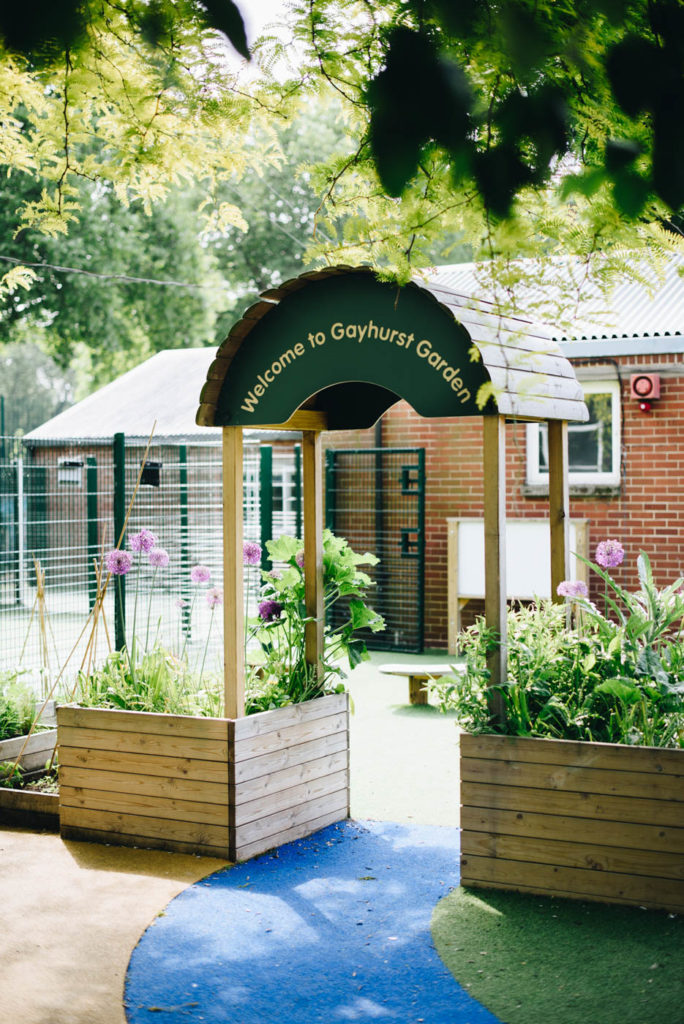
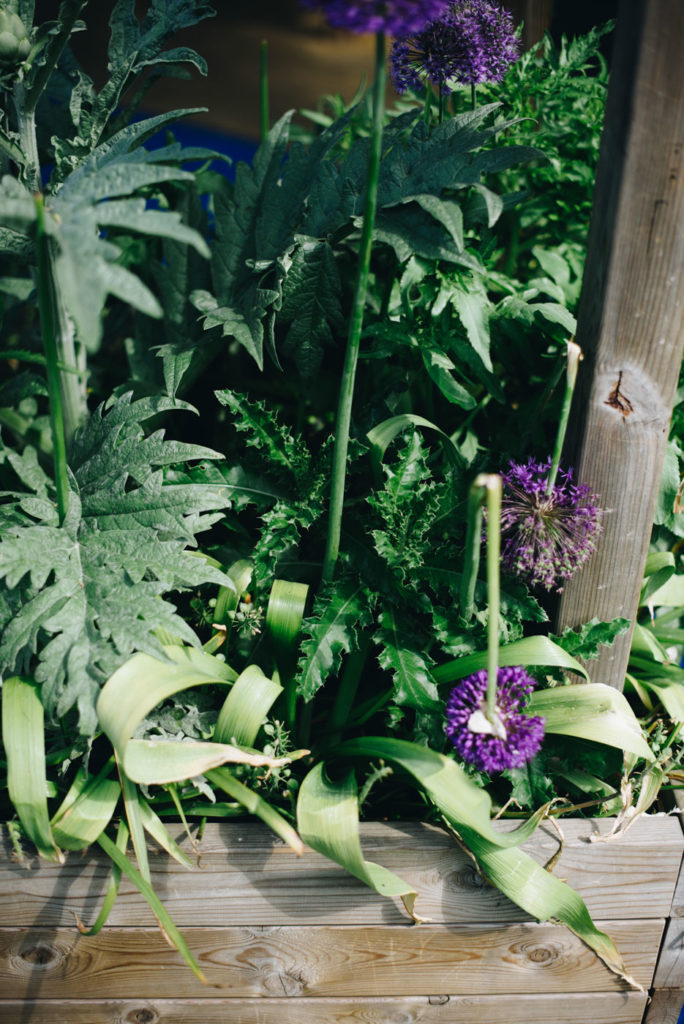
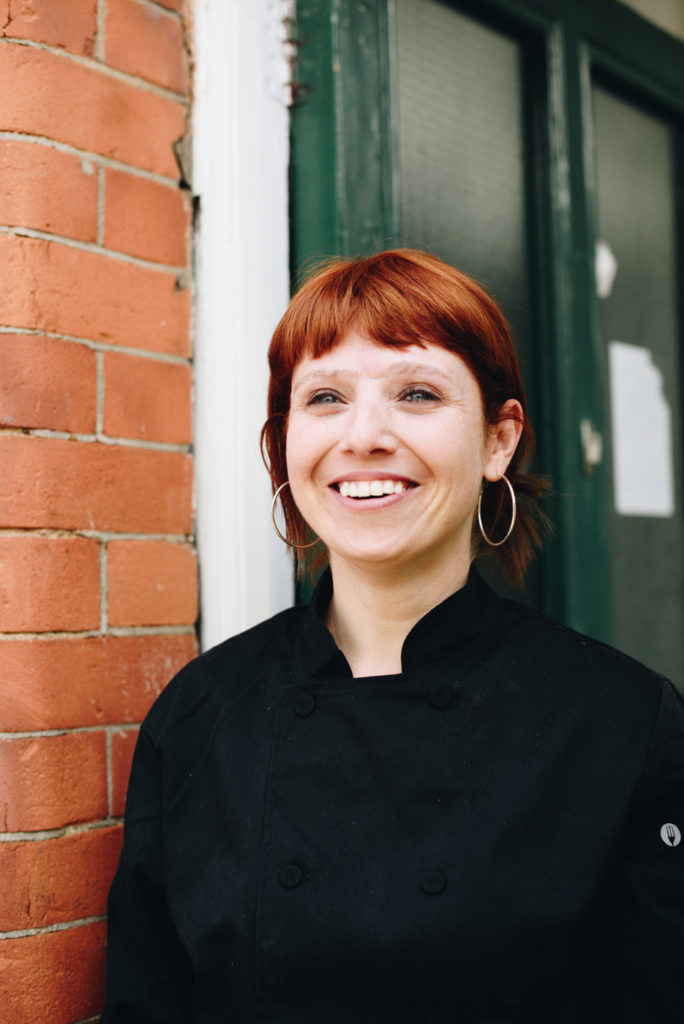
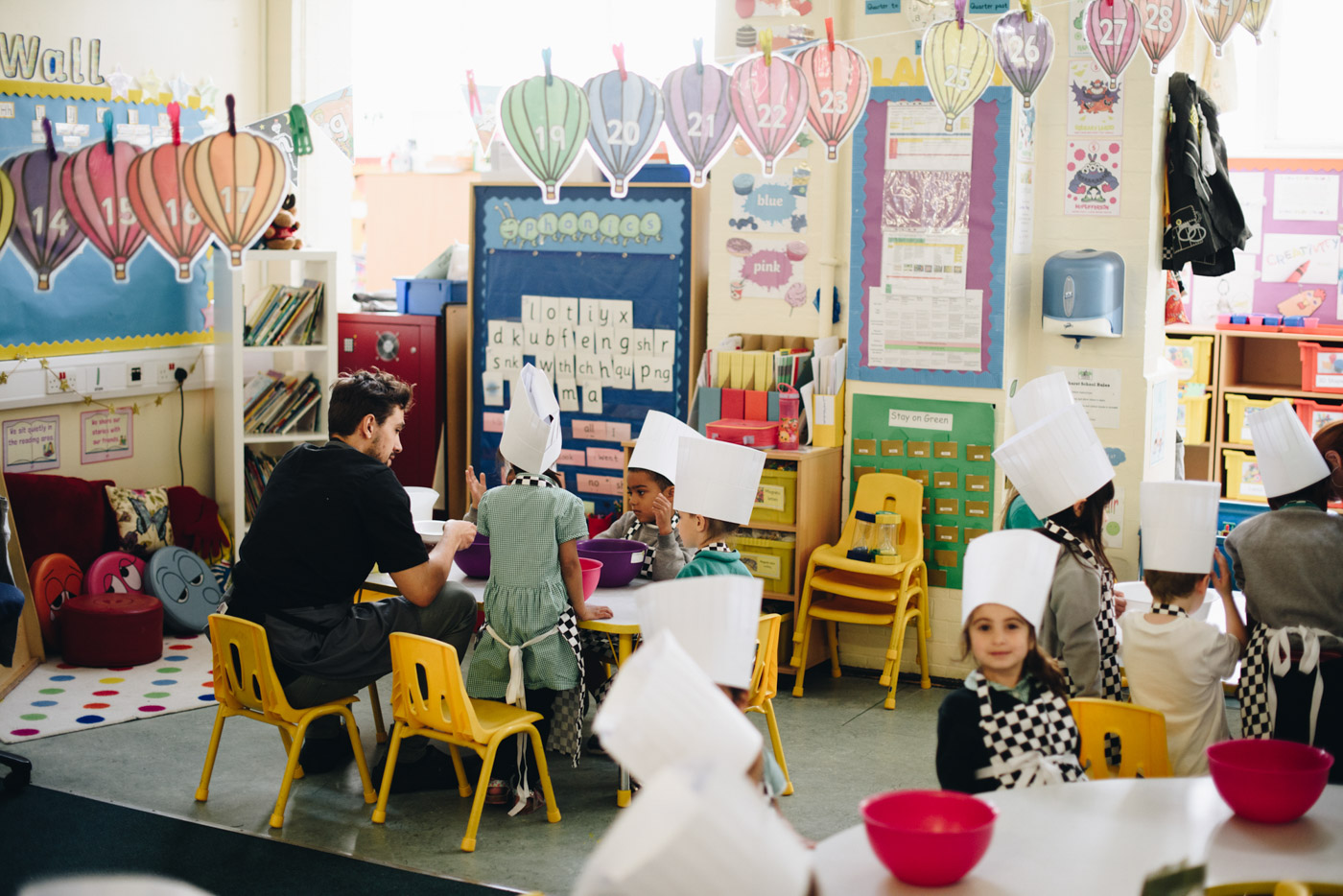
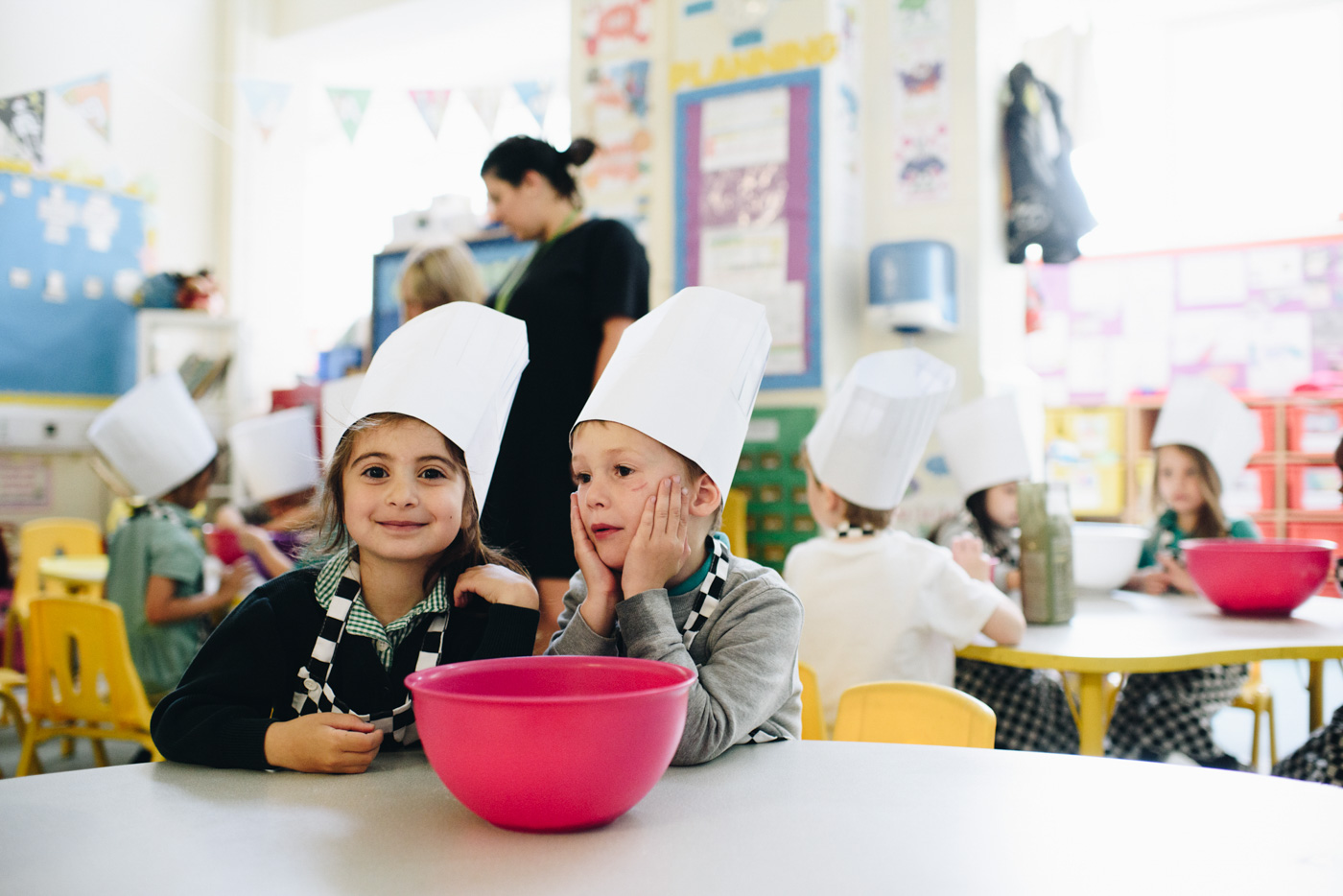
In many ways, Gayhurst is the quintessential inner-city school. Yet mealtimes here are different. At lunchtime, pupils gather at the long trestle tables in the cafeteria for sharing platters of vegetables like pickled radishes, cauliflower and carrots, freshly baked bread and hearty mains, olive-spiked stews, roast chicken with a kick of soy sauce, shakshuka, golden crumbed fresh fish, and pea and feta fritters (lifted from the pages of NOPI’s cookbook). “Yotam jokes, ‘In ten years’ time they’re not going to pay for the food at NOPI because they get it at school’” Pisani laughs, as we walk around the tarmacked playground past a vegetable garden overflowing with herbs and lettuce. “Kids love strong flavors. It’s just a case of making it look appealing and keeping it colorful and familiar. They always surprise you; people often underestimate children.”
Along with Oliver Pagani (former sous chef at East London’s Poco and NOPI), Pisani’s mission is to bring nutritious, exciting food to the school lunch table while nurturing the pupils’ interests in ingredients and cooking. Tangles of fresh herbs are often left in the center of the tables for students to taste, while they are taught to pick vegetables, bake bread, cook on a fire pit, and even butcher chickens. Walking us through the grounds, Pisani recounts one particularly amusing story of a boy caught red-handed in the vegetable patch, tearily admitting to snacking on fennel tops when asked to reveal what was in his mouth.
We join a classroom of five-year-olds as Pisani and Pagani conducted a “soda bread from scratch” lesson. We help the pupils pull on mini aprons and chef’s hats, arming each of them with a wooden spoon and a bowl and watching their eyes light up as they plunge their hands into the mixture. “I’m going to be a chef when I grow up,” one student announces proudly from behind a cloud of flour.
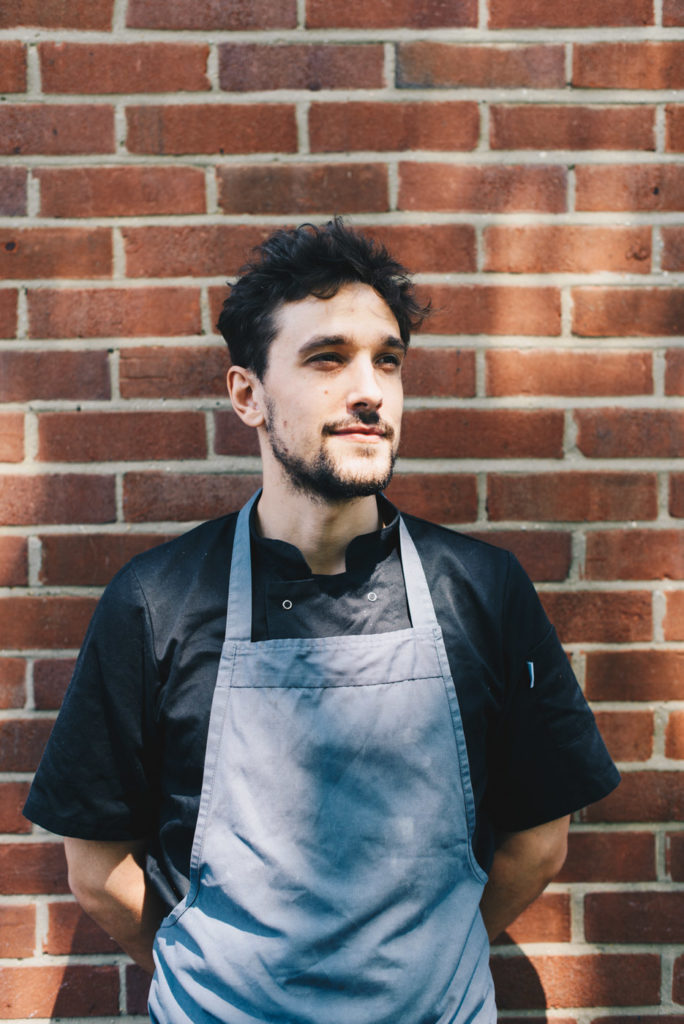

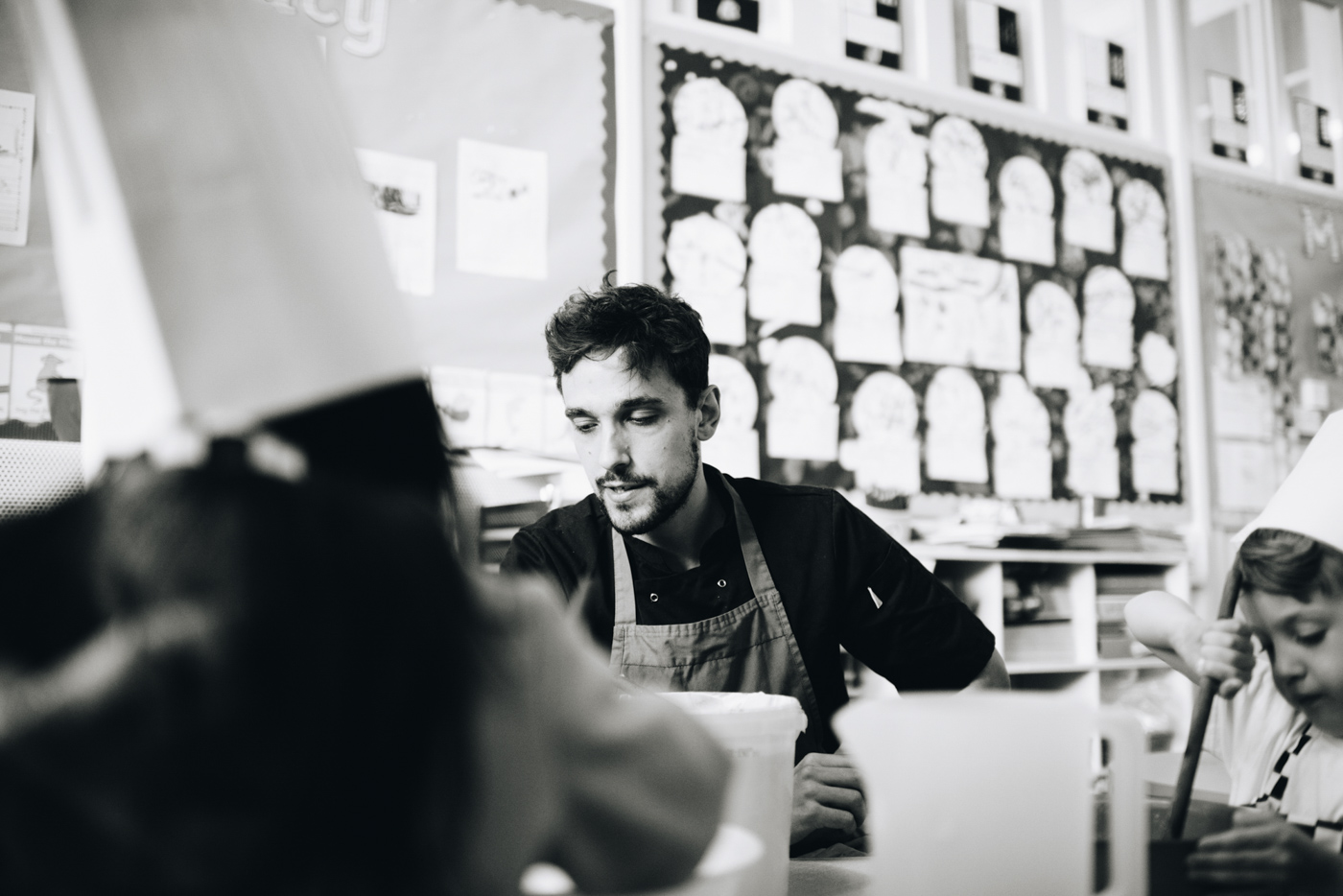



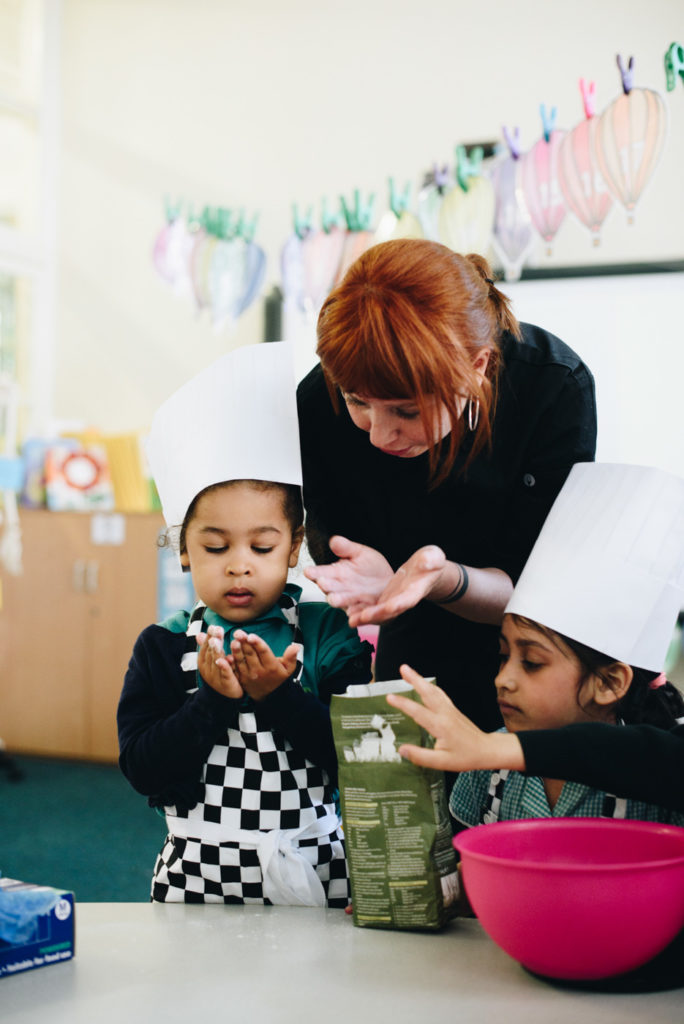
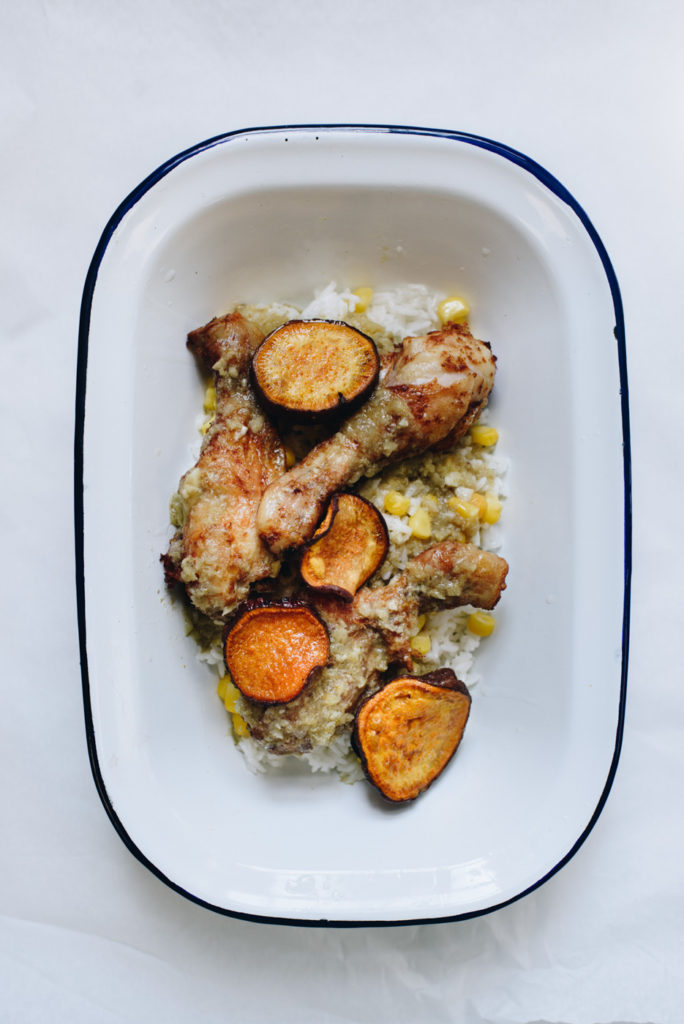
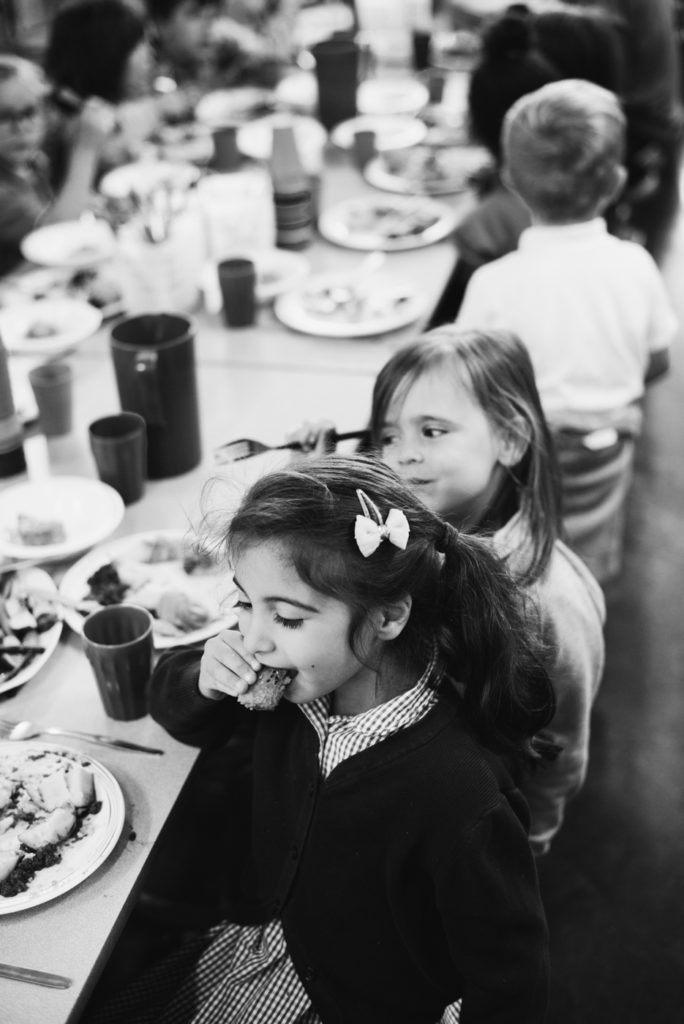

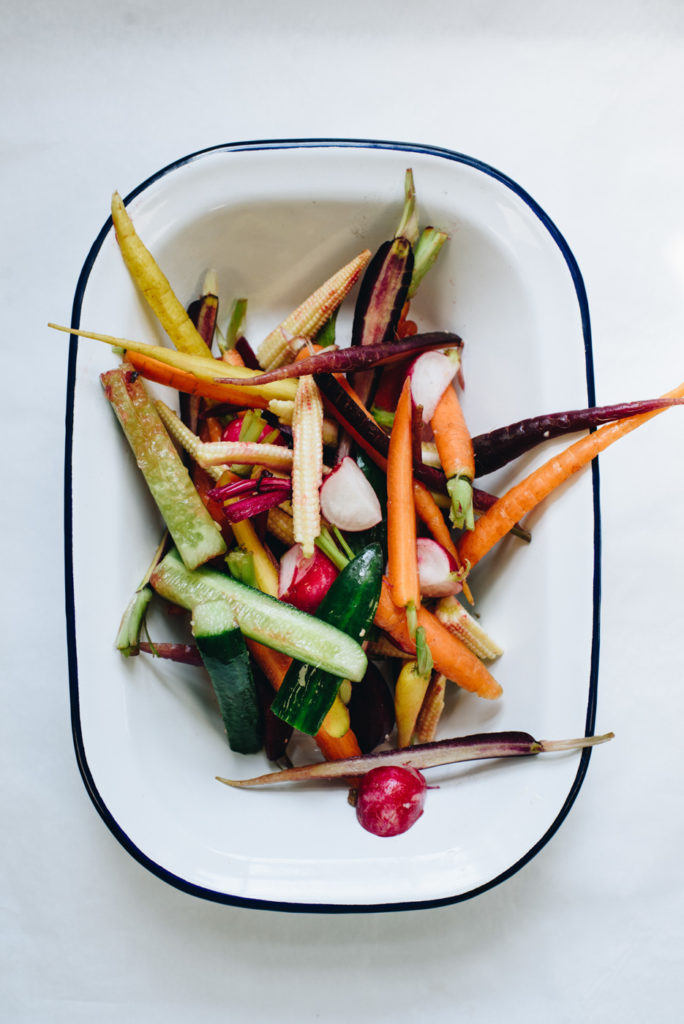
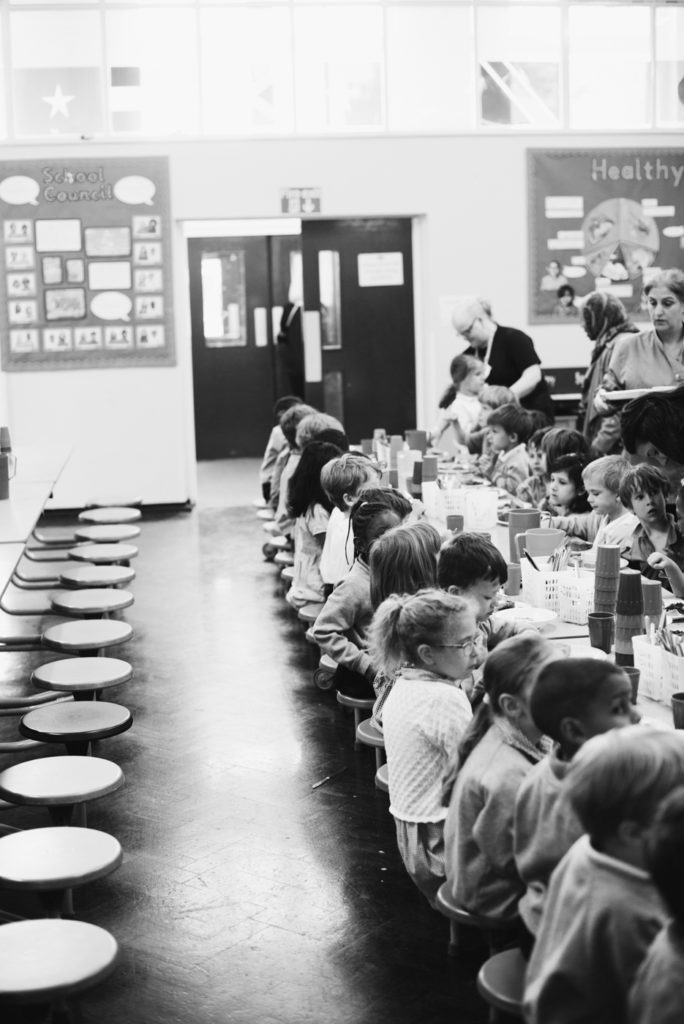
The children get a say in what meals they enjoy, and what they might change. In her small office beside the kitchen, Pisani pulls a giant folder from the shelf. Inside are archived weekly menus from the last few months, peppered with the kind of vocabulary you’d expect to find in some stylish Shoreditch eatery: sesame pita bread, monkfish skewers, Vietnamese beef with pomegranates, buckwheat noodles, muhammara and watercress.
While Pisani and Pagani worked up to eighty gruelling hours a week at NOPI, life in the Gayhurst School kitchen is no less challenging. “Cooking on that scale is hugely challenging. They’re cooking for four hundred people each day,” Dimbleby tell us. “Nicole has the natural economy of a chef, so she really took on the challenge.” Despite using local, seasonal produce whenever possible, and creating restaurant-quality food, Pisani has managed to lower the cost of mealtimes at Gayhurst, disproving the widely accepted notion that fast food is more affordable. “Staying on top of children’s changing appetites and tastes is very challenging. So I can see why it would be easier to give them the chips and fish fingers,” Dimbleby says. “By teaching them about cooking and fresh ingredients, you’re arming them with skills for later life. And a love of food, hopefully.”
“The idea is to get chefs into a hundred schools in the next five years,” Dimbleby tells us. “Word of mouth has been incredibly helpful. Chefs were reading about what Nicole was doing and getting in touch to see how they could get involved.” Schools around the country are turning to Gayhurst as a model for change, recognizing the opportunity to provide students with exciting, nutritious meals, interaction with the local community, cooking skills, and with any luck, a lifelong love of food.

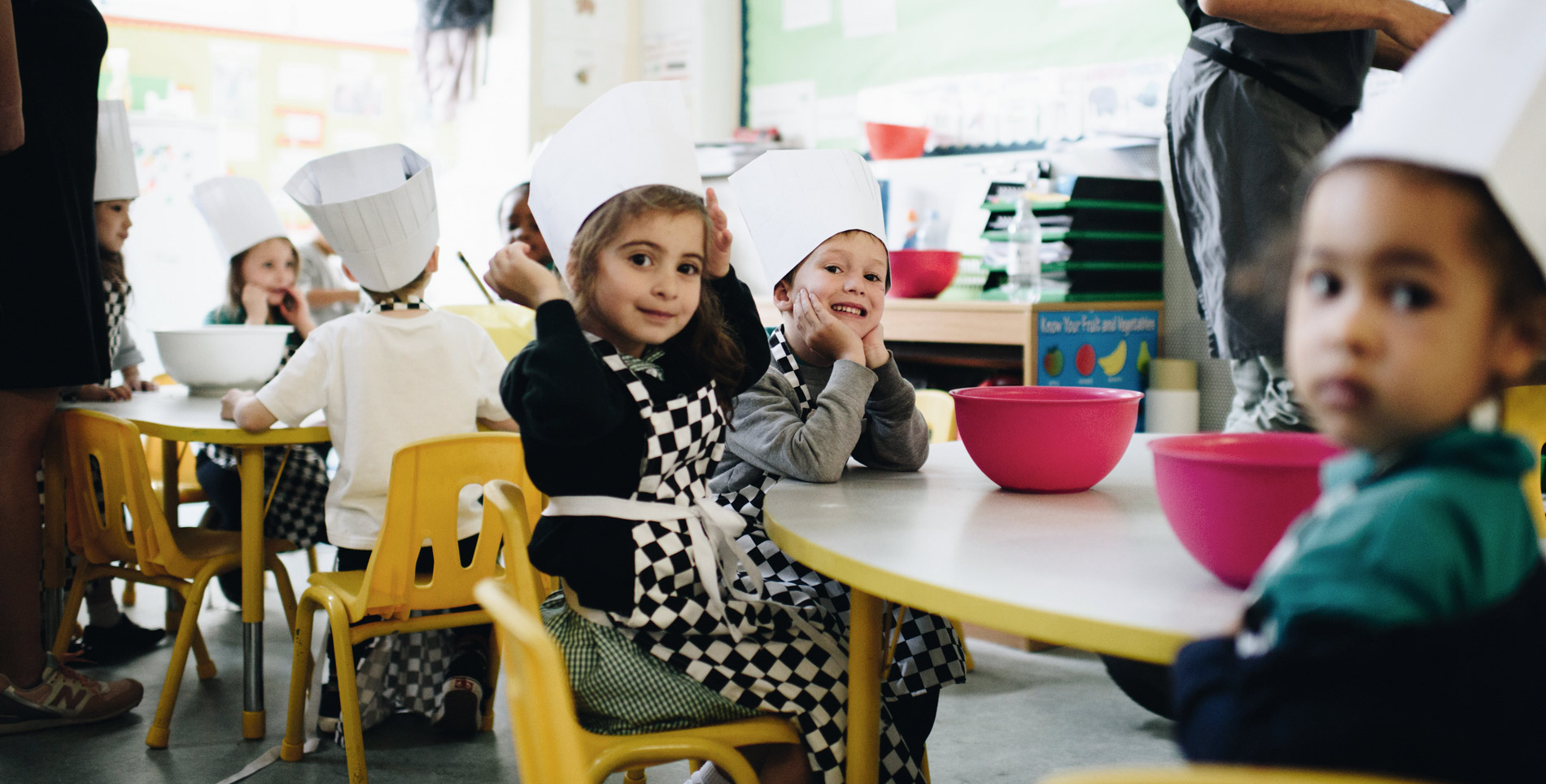

Our comments section is for members only.
Join today to gain exclusive access.